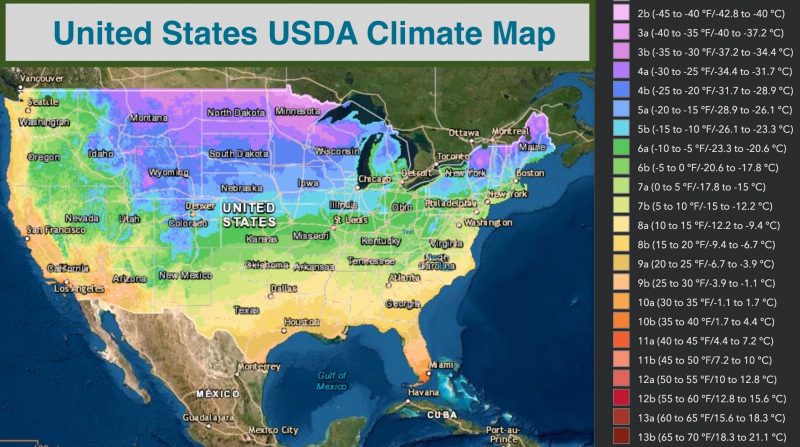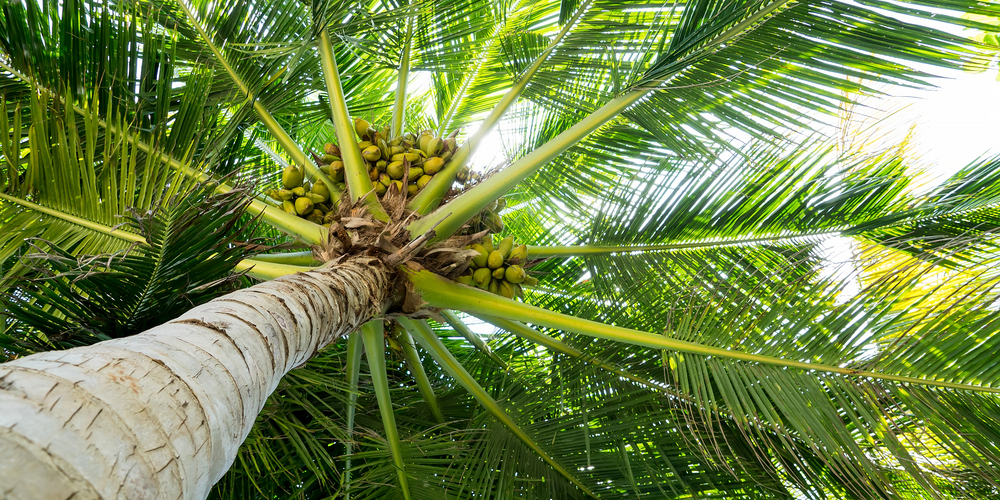Have you thought about planting coconut trees on your property? Do you wonder if they will thrive in your area? If so, then you have come to the right place. Today, we are going to learn where do coconuts grow and see if your property is the right place to grow these beautiful trees.
Where Do Coconuts Grow?: The Most Common Places Coconuts Grow
Below are the most common places where coconuts grow. These are areas of the country where you can find coconuts growing in their natural environment.
Florida
The state of Florida is home to thousands of beautiful coconut trees. Florida, with its humid tropical climate, is a wonderful place to grow and harvest coconuts. South Florida is where you will find most coconut trees growing. The bottom tip of the state is where these trees thrive the most.
Hawaii
We all know that coconut palm trees grow in abundance in Hawaii. Hawaii wouldn’t be the same without these iconic tropical trees.
If you live in Hawaii, chances are you already have coconut trees on your property. You may also be able to grow other types of tropical fruits in Hawaii.
Where Else Can You Plant Coconuts in the US?
As you have learned above, coconut trees thrive in Florida and Hawaii. But what about the rest of the country? Coconut palm trees thrive in hardiness zones 10 and 11. However, with proper care, they can grow in hardiness zone 9.
How To Care for Coconut Trees in Hardiness Zone 9-11
So, you want to grow coconut trees on your property? The tips below can help you grow these fun and interesting tropical trees.
Soil Conditions
You have to have the right soil conditions for coconut trees to do well. These palms love soil that has a PH from 5.0 to 8.0. Before planting your trees, make sure that you do a soil test.
This will help you determine how acidic your soil is and what amendments you may need to add.
Sunlight
Coconut palms simply love to bask in the sun. This is why you see them so often on the beaches of Hawaii and Florida.
When choosing the right spot to plant coconut palms, make sure that you pick an area with plenty of direct sunlight. This will help your trees reach their fullest potential.
Rainfall
Coconut trees love moisture, and they do best in areas that receive 30 to 50 inches of rainfall per year.
If your area doesn’t get this much rainfall, you will need to irrigate your trees. This will provide them with ample moisture, and they will grow tall and strong.
Planting Coconut Palms from Seed
Many people choose to purchase coconut palm trees from a plant nursery. Getting trees that are a few years old can help you get a head start on growing these fun trees.
If you are more of an adventurous type, then you might want to try starting these palms from seed. Growing coconut palms from seed is not easy, but it can be done, with the right know-how.
Start With the Right Coconut
When choosing a coconut to plant, choose one that is heavy and full of liquid. Dried-out coconuts won’t germinate.
Softening The Seed
Once you have a coconut to plant, place it in a bucket of water and submerge it. Place something heavy on the coconut like a brick to weigh it down. Keep the coconut in the bucket for 3 days. This will soften the seed and help it to germinate.
Put It in a Plastic Bag
After you remove the coconut from the bucket, place it in a plastic bag with one cup of water. Next, put the bag in a warm, dark location. Check the coconut seed once a week to see if it has begun to germinate. Once the roots emerge from the seed, wrap them in a paper towel and place the seed back in the bag.
Time To Plant Your Coconut Seed
Once the roots of the seed are 6 inches long, you can plant the seed into the ground. To plant the seed, dig a medium-sized hole in well-drained soil. Leave half of the seed sticking out from the ground and cover the rest with the loose soil.
Where Do Coconuts Grow?: Conclusion
If you live in hardiness zones 9 to 11, you will be able to grow coconuts trees on your property. Keep in mind these trees need care to thrive in zone 9.
Also, remember that coconut palm trees grow really tall, so make sure your property has enough room for them.
Related Article: States That Have Palm Trees


